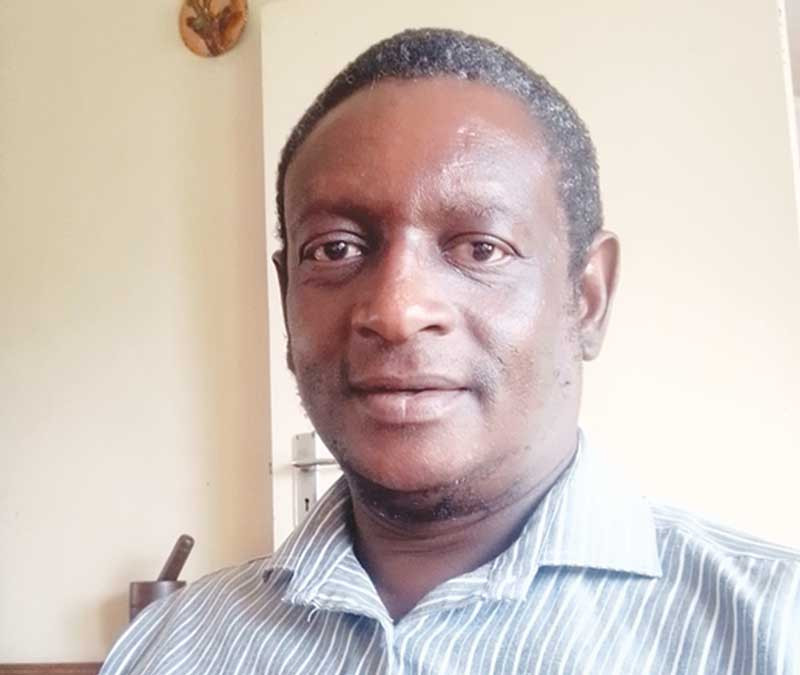
Making excuses for inaction can become a habit and addictive — sounding more and more logical each time we hide behind them.
I am sure we have been, or still are, victims or rather captives of this “disease” of making excuses as to why we “cannot or are unable” to do something.
No matter how ridiculous or illogical these may be — nonetheless, to the individual making them, they make perfect sense.
In fact, the person who pushed me to resume writing again — after a long break spanning years — was my dear wife Tinta.
In spite of having began my social justice writing at the young age of 16 (while, in Form 3 at Kwekwe High School) — when I used to contribute news articles on the plight of suffering Zimbabweans to local weekly publications, and later on (in 1991 doing my Lower Six) penning my own personal column — I began to slacken at college.
As the years moved, the writings became far and in-between, until they completely dried up.
However, Tinta would always encourage me to start writing again — since she was aware that it was my passion — but, I always had excuses.
The main one was that, I did not have a personal computer — so, there was no way I could write, as the era of posting handwritten articles had long ended.
- Mavhunga puts DeMbare into Chibuku quarterfinals
- Bulls to charge into Zimbabwe gold stocks
- Ndiraya concerned as goals dry up
- Letters: How solar power is transforming African farms
Keep Reading
Nevertheless, she never relented, insisting that I could try using my mobile phone.
Surely, how was I expected to type long articles on a phone?
Although, initially, I laughed off the idea as ludicrous — as time passed, I began seriously considering it — and, the more I did that, the more it started to make some sense.
One day, I decided to give it a try — and, voilà!
As much as it was quite tricky, a bit clumsy and cumbersome — I, however, managed to produce my first article in 2015, after many years — typed on my phone.
Let me be clear here: this was not even a smartphone, but a small feature phone (kambudzi) — which had Opera Mini (and, thus a smaller version of Gmail, where the number of characters one could write was limited. I would type the article straight onto the body of the email (since such phones do not support word processing apps), proofread it, and send.
With each piece of writing, the more confident and comfortable I become.
I finally purchased a smartphone, on which I continued with my daily articles.
I have become so accustomed to using my smartphone, whose portability enables me to write articles virtually anywhere and anytime (including, in queues, while travelling, or even cooking).
Be that as it may, why I am mentioning this is on account of how easy, and even comfortable, it can be to always make excuses for our inaction.
In fact, venturing outside our comfort zones can be frightening.
That is why I empathise with those who send me messages expressing their apprehension, and proffering reasons as to why calling for mass action — such as national stayaways and shutdowns, as a way of pushing the government for change in the country — is not such a great idea.
I hear some saying such action will only lead to financial ruin for most ordinary Zimbabweans who are already impoverished and cannot afford forgoing their income-generating projects, in preference to staying at home, as a form of protest.
Granted, most people in this country are not formally employed, and are largely self-employed — such that, under the current economic hardships, every single dollar counts.
Well, as with any other excuse, this line of thinking makes quite a lot of sense — on the surface, that is.
For those who may be interested to know — I am also self-employed.
However, in life there are always causes that are worth sacrifice — in the pursuit of a greater goal.
In fact, I can even call it an investment — whereby, I am ready to lose something important and dear to me today, in order for the attainment of a bigger gain or reward later.
Let us look at those who fought for this country from the yoke and shackle of colonial rule.
Are we to say, they did not have anything to lose by leaving behind their families, friends and lives and stay in the bush, where they faced constant attack from Rhodesian forces and losing their lives and limb, or if captured, spend long periods of imprisonment?
Our intrepid men and women of the soil, had their own livelihoods — some were teachers, nurses, lawyers, doctors, or school and university students, with a relatively bright future to look forward to.
But they chose to sacrifice all that in the hope of a better Zimbabwe.
So, what is the logic in the endless excuses we love making as to why we cannot take a firmer and more assertive stand against the relentless onslaught, oppression and marginalisation at the hands of those in power — who have chosen the path of self-enrichment at the expense of the ordinary citizenry?
Would it not make much sense for us to forgo whatever little, and quickly depreciating income we have today — in an economy worsening by the day, with the real danger of losing it all sooner rather than later — in the struggle for a better future for us all?
Why hold on to the US$1 you can make today instead of fighting for US$100 you can earn tomorrow, under a more favourable economy?
Dear Zimbabweans, we need to be serious with our lives, and the futures of our children and grandchildren.
Surely, what legacy and inheritance are we bequeathing them when we chose to hold on to the measly income we are earning today instead of putting everything aside, for a cause that will greatly improve our livelihoods tomorrow?
We need to get out of our comfort zones and make bold decisions for our future.
Tendai Ruben Mbofana is a social justice activist, writer, researcher, and social commentator.









